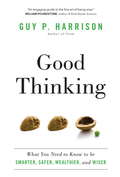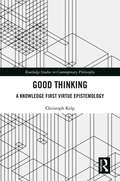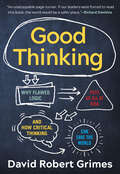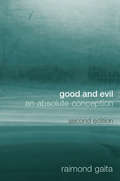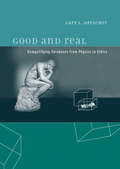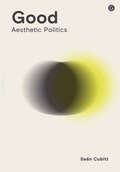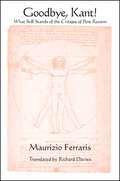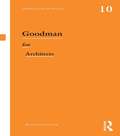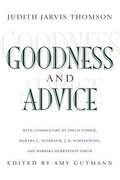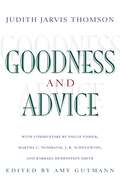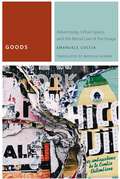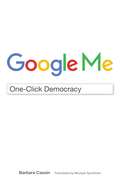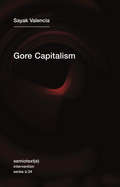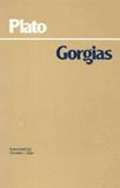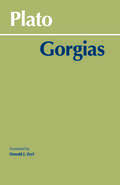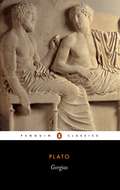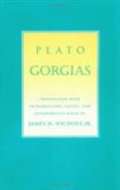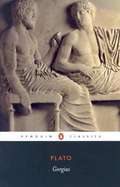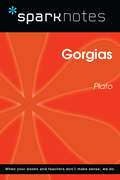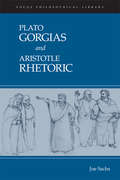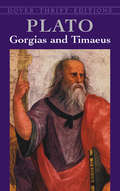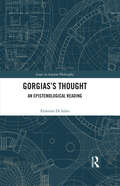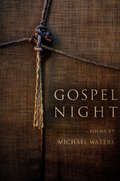- Table View
- List View
Good Thinking
by Guy P. HarrisonCritical-thinking skills are essential for life in the 21st century. In this follow-up to his introductory guide Think, and continuing his trademark of hopeful skepticism, Guy Harrison demonstrates in a detailed fashion how to sort through bad ideas, unfounded claims, and bogus information to drill down to the most salient facts. By explaining how the human brain works, and outing its most irrational processes, this book provides the thinking tools that will help you make better decisions, ask the right questions (at the right time), know what to look for when evaluating information, and understand how your own brain subconsciously clouds your judgment. Think you're too smart to be easily misled? Harrison summarizes scientific research showing how easily even intelligent and well-educated people can be fooled. We all suffer from cognitive biases, embellished memories, and the tendency to kowtow to authority figures or be duped by dubious 'truths' packaged in appealing stories. And as primates we are naturally status seekers, so we are prone to irrational beliefs that seem to enhance our sense of belonging and ranking. Emotional impulses and stress also all too often lead us into traps of misperception and bad judgment. Understanding what science has discovered about the brain makes you better equipped to cope with its built-in pitfalls. Good Thinking--the book and the practice-- makes clear that with knowledge and the right thinking skills, anyone can lead a safer, wiser, more efficient, and productive life.From the Trade Paperback edition.
Good Thinking: A Knowledge First Virtue Epistemology (Routledge Studies in Contemporary Philosophy)
by Christoph KelpThis book combines virtue reliabilism with knowledge first epistemology to develop novel accounts of knowledge and justified belief. It is virtue reliabilist in that knowledge and justified belief are accounted for in terms of epistemic ability. It is knowledge first epistemological in that, unlike traditional virtue reliabilism, it does not unpack the notion of epistemic ability as an ability to form true beliefs but as an ability to know, thus offering a definition of justified belief in terms of knowledge. In addition, the book aims to show that this version of knowledge first virtue reliabilism serves to provide novel solutions to a number of core epistemological problems and, as a result, compares favourably with alternative versions of virtue reliabilism both in the traditionalist and in the knowledge first camp. This is the first ever book-length development of knowledge first virtue reliabilism, and it will contribute to recent debates in these two growing areas of epistemology.
Good Thinking: Why Flawed Logic Puts Us All At Risk And How Critical Thinking Can Save The World
by David Robert GrimesGood Thinking is our best defense against anti-vaccine paranoia, climate denial, and other dire threats of today Publisher’s Note: Good Thinking was previously published in the UK as The Irrational Ape. In our ever-more-polarized society, there’s at least one thing we still agree on: The world is overrun with misinformation, faulty logic, and the gullible followers who buy into it all. Of course, we’re not among them—are we? Scientist David Robert Grimes is on a mission to expose the logical fallacies and cognitive biases that drive our discourse on a dizzying array of topics–from vaccination to abortion, 9/11 conspiracy theories to dictatorial doublespeak, astrology to alternative medicine, and wrongful convictions to racism. But his purpose in Good Thinking isn’t to shame or place blame. Rather, it’s to interrogate our own assumptions–to develop our eye for the glimmer of truth in a vast sea of dubious sources–in short, to think critically. Grimes’s expert takedown of irrationality is required reading for anyone wondering why bad thinking persists and how we can defeat it. Ultimately, no one changes anyone else’s mind; we can only change our own–and give others the tools to do the same.
Good and Evil: An Absolute Conception
by Raimond GaitaRaimond Gaita's Good and Evil is one of the most important, original and provocative books on the nature of morality to have been published in recent years. It is essential reading for anyone interested in what it means to talk about good and evil. Gaita argues that questions about morality are inseparable from the preciousness of each human being, an issue we can only address if we place the idea of remorse at the centre of moral life. Drawing on an astonishing range of thinkers and writers, including Plato, Wittgenstein, George Orwell and Primo Levi, Gaita also reflects on the place of reason and truth in morality and ultimately how questions about good and evil are connected to the meaning of our lives.This revised edition of Good and Evil includes a substantial new preface and afterword by the author.
Good and Real: Demystifying Paradoxes from Physics to Ethics (Bradford Bks.)
by Gary L. DrescherExamining a series of provocative paradoxes about consciousness, choice, ethics, and other topics, Good and Real tries to reconcile a purely mechanical view of the universe with key aspects of our subjective impressions of our own existence.In Good and Real, Gary Drescher examines a series of provocative paradoxes about consciousness, choice, ethics, quantum mechanics, and other topics, in an effort to reconcile a purely mechanical view of the universe with key aspects of our subjective impressions of our own existence.Many scientists suspect that the universe can ultimately be described by a simple (perhaps even deterministic) formalism; all that is real unfolds mechanically according to that formalism. But how, then, is it possible for us to be conscious, or to make genuine choices? And how can there be an ethical dimension to such choices? Drescher sketches computational models of consciousness, choice, and subjunctive reasoning—what would happen if this or that were to occur?—to show how such phenomena are compatible with a mechanical, even deterministic universe. Analyses of Newcomb's Problem (a paradox about choice) and the Prisoner's Dilemma (a paradox about self-interest vs. altruism, arguably reducible to Newcomb's Problem) help bring the problems and proposed solutions into focus. Regarding quantum mechanics, Drescher builds on Everett's relative-state formulation—but presenting a simplified formalism, accessible to laypersons—to argue that, contrary to some popular impressions, quantum mechanics is compatible with an objective, deterministic physical reality, and that there is no special connection between quantum phenomena and consciousness.In each of several disparate but intertwined topics ranging from physics to ethics, Drescher argues that a missing technical linchpin can make the quest for objectivity seem impossible, until the elusive technical fix is at hand.
Good: Aesthetic Politics
by Sean CubittWhat is the good life—for me, for us, for the cosmos?Good is an ecocritical enquiry into ethical and political dimensions of aesthetics. Following Aristotle&’s lead, it starts with ethics as the question concerning what is the good life for me, moving on to politics as the good life for us. Like Aristotle, between ethics and politics it inserts the question of the good life for you and me—the question of love. In the end—which is where we all live today—it goes beyond Aristotle&’s human-centred approach, insisting that the good life cannot be thought or lived without including technologies and ecologies. A truly cosmopolitan politics is a politics of the cosmos. Learning from indigenous cultures, it speaks from and with nature and machines in the form of gods and ancestors. Packed with examples from banking apps to cave art, economic manifestos to cookery, passing through music, painting, poetry, and film, the book evokes critical traditions from across the world to present a lucid and accessible case for decolonial and ecocritical aesthetics.
Goodbye Mr. Socialism
by Antonio Negri Raf Valvola ScelsiGoodbye Mr. Socialism offers a gripping encounter with one of today's leading leftists, presenting his most up-to-date analysis of global events and insight into the prospects for the Left in an age of neoliberalism. In his most accessible work yet, philosopher Antonio Negri discusses the state of the global Left since the end of the Cold War and suggests a new politics in a series of rousing conversations with Raf Valvola Scelsi. Scelsi prompts Negri to critique the episodes in the post-Cold War period that have afforded the Left opportunities to rethink its strategies and objectives. Addressing the twilight of social democracy, Negri offers a compelling defense of the prospects for social transformation.
Goodbye, Kant!: What Still Stands of the Critique of Pure Reason (SUNY series in Contemporary Italian Philosophy)
by Maurizio FerrarisA best seller in Italy, Maurizio Ferraris's Goodbye, Kant! delivers a nontechnical, entertaining, and occasionally irreverent overview of Immanuel Kant's Critique of Pure Reason. He borrows his title from Wolfgang Becker's Goodbye Lenin!, the 2003 film about East Germany after the fall of the Berlin Wall, which depicts both relief at the passing of the Soviet era and affection for the ideals it embodied. Ferraris approaches Kant in similar spirits, demonstrating how the structure that Kant elaborates for the understanding of human knowledge can generate nostalgia for lost aspirations, while still leaving room for constructive criticism. Isolating key themes and concerns in the work, Ferraris evaluates Kant's claims relative to what science and philosophy have come to regard as the conditions for knowledge and experience in the intervening two centuries. He remains attentive to the historical context and ideals from which Kant's Critique emerged but also resolute in identifying what he sees as the limits and blind spots in the work. The result is an accessible account of a notoriously difficult book that will both provoke experts and introduce students to the work and to these important philosophical debates about the relations of experience to science.
Goodman for Architects: Goodman For Architects (Thinkers for Architects)
by Remei Capdevila-WerningAmerican philosopher Nelson Goodman (1906-1998) was one of the foremost analytical thinkers of the twentieth century, with groundbreaking contributions in the fields of logic, philosophy of science, epistemology, and aesthetics. This book is an introduction to the aspects of Goodman’s philosophy which have been the most influential among architects and architectural theorists. Goodman specifically discussed architecture in his major work on aesthetics, The Languages of Art: An Approach to a Theory of Symbols (1968), and in two essays "How Buildings Mean" (1985), and "On Capturing Cities" (1991). His main philosophical notions in Ways of Worldmaking (1978) also apply well to architecture. Goodman’s thought is particularly attractive because of its constructive aspect: there is not a given and immutable world, but both knowledge and reality are constantly built and rebuilt. Whereas other theories, such as deconstruction, implicitly entail an undoing of modern precepts, Goodman’s conception of world-making offers a positive, constructive way to understand how a plural reality is made and remade. Goodman’s approach to architecture is not only relevant thinking in providing new insights to understanding the built environment, but serves also as an illustration of analytical thinking in architecture. This book shows that the methods, concepts, and ways of arguing characteristic of analytical philosophy are helpful tools to examine buildings in a novel and fruitful way and they will certainly enhance the architect’s critical skills when designing and thinking about architecture.
Goodness & Advice
by Judith Jarvis ThomsonHow should we live? What do we owe to other people? In Goodness and Advice, the eminent philosopher Judith Jarvis Thomson explores how we should go about answering such fundamental questions. In doing so, she makes major advances in moral philosophy, pointing to some deep problems for influential moral theories and describing the structure of a new and much more promising theory. Thomson begins by lamenting the prevalence of the idea that there is an unbridgeable gap between fact and value--that to say something is good, for example, is not to state a fact, but to do something more like expressing an attitude or feeling. She sets out to challenge this view, first by assessing the apparently powerful claims of Consequentialism. Thomson makes the striking argument that this familiar theory must ultimately fail because its basic requirement--that people should act to bring about the "most good"--is meaningless. It rests on an incoherent conception of goodness, and supplies, not mistaken advice, but no advice at all. Thomson then outlines the theory that she thinks we should opt for instead. This theory says that no acts are, simply, good: an act can at most be good in one or another way--as, for example, good for Smith or for Jones. What we ought to do is, most importantly, to avoid injustice; and whether an act is unjust is a function both of the rights of those affected, including the agent, and of how good or bad the act is for them. The book, which originated in the Tanner lectures that Thomson delivered at Princeton University's Center for Human Values in 1999, includes two chapters by Thomson ("Goodness" and "Advice"), provocative comments by four prominent scholars--Martha Nussbaum, Jerome Schneewind, Philip Fisher, and Barbara Herrnstein Smith--and replies by Thomson to those comments.
Goodness and Advice (The University Center for Human Values Series #25)
by Judith Jarvis ThomsonHow should we live? What do we owe to other people? In Goodness and Advice, the eminent philosopher Judith Jarvis Thomson explores how we should go about answering such fundamental questions. In doing so, she makes major advances in moral philosophy, pointing to some deep problems for influential moral theories and describing the structure of a new and much more promising theory. Thomson begins by lamenting the prevalence of the idea that there is an unbridgeable gap between fact and value--that to say something is good, for example, is not to state a fact, but to do something more like expressing an attitude or feeling. She sets out to challenge this view, first by assessing the apparently powerful claims of Consequentialism. Thomson makes the striking argument that this familiar theory must ultimately fail because its basic requirement--that people should act to bring about the "most good"--is meaningless. It rests on an incoherent conception of goodness, and supplies, not mistaken advice, but no advice at all. Thomson then outlines the theory that she thinks we should opt for instead. This theory says that no acts are, simply, good: an act can at most be good in one or another way--as, for example, good for Smith or for Jones. What we ought to do is, most importantly, to avoid injustice; and whether an act is unjust is a function both of the rights of those affected, including the agent, and of how good or bad the act is for them. The book, which originated in the Tanner lectures that Thomson delivered at Princeton University's Center for Human Values in 1999, includes two chapters by Thomson ("Goodness" and "Advice"), provocative comments by four prominent scholars--Martha Nussbaum, Jerome Schneewind, Philip Fisher, and Barbara Herrnstein Smith--and replies by Thomson to those comments.
Goods: Advertising, Urban Space, and the Moral Law of the Image (Commonalities)
by Emanuele CocciaObjects are all around us – and images of objects, advertisements for objects. Things are no longer merely purely physical or economic entities: within the visual economy of advertising, they are inescapably moral. Any object, regardless of its nature, can for at least a moment aspire to be “good,” can become not just an object of value but a complex of possible happiness, a moral source of perfection for any one of us.Our relation to things, Coccia, argues in this provocative book, is what makes us human, and the object world must be conceived as an ultimate artifact in order for it to be the site of what the philosophical tradition has considered "the good." Thinking a radical political praxis against a facile materialist critique of things, Coccia shows how objects become the medium through which a city enunciates its ethos, making available an ethical life to those who live among them.When we acknowledge that our notion of “the good” resides within a world of things, we must grant that in advertising, humans have revealed themselves as organisms that are ethically inseparable from the very things they produce, exchange, and desire. In the advertising imaginary, to be human is to be a moral cyborgs whose existence attains ethical perfection only via the universe of things. The necessary alienation which commodities cause and express is moral rather than economic or social; we need our own products not just to survive biologically or to improve the physical conditions of our existence, but to live morally. Ultimately, Coccia’s provocative book offers a radically political rethinking of the power of images. The problem of contemporary politics is not the anesthetization of words but the excess power we invest in them. Within images, we already live in another form of political life, which has very little to do with the one invented and formalized by the ancient and modern legal tradition. All we need to do is to recognize it. Advertising and fashion are just the primitive, sometimes grotesque, but ultimately irrepressible prefiguration of the new politics to come.
Google Me: One-Click Democracy (Meaning Systems)
by Barbara Cassin“Google is a champion of cultural democracy, but without culture and without democracy.” In this witty and polemical critique the philosopher Barbara Cassin takes aim at Google and our culture of big data. Enlisting her formidable knowledge of the rhetorical tradition, Cassin demolishes the Google myth of a “good” tech company and its “democracy of clicks,” laying bare the philosophical poverty and political naiveté that underwrites its founding slogans: “Organize the world’s information,” and “Don’t be evil.” For Cassin, this conjunction of globalizing knowledge and moral imperative is frighteningly similar to the way American demagogues justify their own universalizing mission before the world.While sensitive to the possibilities of technology and to Google’s playful appeal, Cassin shows what is lost when a narrow worship of information becomes dogma, such that research comes to mean data mining and other languages become provincial “flavors” folded into an impoverished Globish, or global English.
Gore Capitalism (Semiotext(e) / Intervention Series #24)
by Sayak ValenciaAn analysis of contemporary violence as the new commodity of today's hyper-consumerist stage of capitalism.“Death has become the most profitable business in existence.”—from Gore CapitalismWritten by the Tijuana activist intellectual Sayak Valencia, Gore Capitalism is a crucial essay that posits a decolonial, feminist philosophical approach to the outbreak of violence in Mexico and, more broadly, across the global regions of the Third World. Valencia argues that violence itself has become a product within hyper-consumerist neoliberal capitalism, and that tortured and mutilated bodies have become commodities to be traded and utilized for profit in an age of impunity and governmental austerity.In a lucid and transgressive voice, Valencia unravels the workings of the politics of death in the context of contemporary networks of hyper-consumption, the ups and downs of capital markets, drug trafficking, narcopower, and the impunity of the neoliberal state. She looks at the global rise of authoritarian governments, the erosion of civil society, the increasing violence against women, the deterioration of human rights, and the transformation of certain cities and regions into depopulated, ghostly settings for war. She offers a trenchant critique of masculinity and gender constructions in Mexico, linking their misogynist force to the booming trade in violence.This book is essential reading for anyone seeking to analyze the new landscapes of war. It provides novel categories that allow us to deconstruct what is happening, while proposing vital epistemological tools developed in the convulsive Third World border space of Tijuana.
Gorgias
by Plato Donald J. Zeyl"This is an excellent translation. It achieves a very high standard of accuracy and readability, two goals very difficult to attain in combination when it comes to such a master of prose and philosophical argument as Plato. Because of this the book is suitable for courses at all levels in philosophy, from introductory courses on Plato, or problems in Philosophy, to graduate seminars. " -- Gerasimos Santas, Teaching Philosophy
Gorgias
by Plato Donald J. ZeylThis is an excellent translation. It achieves a very high standard of accuracy and readability, two goals very difficult to attain in combination when it comes to such a master of prose and philosophical argument as Plato. Because of this the book is suitable for courses at all levels in philosophy, from introductory courses on Plato, or problems in Philosophy, to graduate seminars. --Gerasimos Santas, Teaching Philosophy
Gorgias
by PlatoTaking the form of a dialogue between Socrates, Gorgias, Polus and Callicles, GORGIAS debates perennial questions about the nature of government and those who aspire to public office. Are high moral standards essential or should we give our preference to the pragmatist who gets things done or negotiates successfully? Should individuals be motivated by a desire for personal power and prestige, or genuine concern for the moral betterment of the citizens? These questions go to the heart of Athenian democratic principles and are more relevant than ever in today's political climate.
Gorgias (Agora Editions Ser.)
by Plato James H. NicholsOne of Plato's most widely read dialogues, Gorgias treats the temptations of worldly success and the rewards of the genuinely moral life. Appealing to philosophers as a classic text of moral philosophy--and to everyone for its vividness, clarity, and occassional bitter humor--this new translation is accompanied by explanatory notes and an illuminating and accessible introduction.
Gorgias (Penguin Classics)
by PlatoTaking the form of a dialogue between Socrates, Gorgias, Polus and Callicles, Gorgias debates perennial questions about the nature of government and those who aspire to public office. Are high moral standards essential or should we give our preference to the pragmatist who gets things done or negotiates successfully? Should individuals be motivated by a desire for personal power and prestige, or genuine concern for the moral betterment of the citizens.
Gorgias (SparkNotes Philosophy Guide)
by SparkNotesGorgias (SparkNotes Philosophy Guide) Making the reading experience fun! SparkNotes Philosophy Guides are one-stop guides to the great works of philosophy–masterpieces that stand at the foundations of Western thought. Inside each Philosophy Guide you&’ll find insightful overviews of great philosophical works of the Western world.
Gorgias and Rhetoric
by Plato Aristotle Joe SachsBy pairing translations of Gorgias and Rhetoric, along with an outstanding introductory essay, Joe Sachs demonstrates Aristotles response to Plato. If in the Gorgias Plato probes the question of what is problematic in rhetoric, in Rhetoric, Aristotle continues the thread by looking at what makes rhetoric useful. By juxtaposing the two texts, an interesting "conversation" is illuminated--one which students of philosophy and rhetoric will find key in their analytical pursuits.Focus Philosophical Library translations are close to and are non-interpretative of the original text, with the notes and a glossary intending to provide the reader with some sense of the terms and the concepts as they were understood by Aristotle and Plato's immediate audience.
Gorgias and Timaeus
by PlatoTwo major works by one of history's best known and most widely read and studied philosophers. In Gorgias, an exploration of the proposition that it is better to suffer wrong than to do wrong, Socrates debates with an amoral young sophist and assets that it is preferable to endure someone else's bad conduct than to be the source of bad behavior.Timaeus relates a creation myth that concludes with the birth of humanity, in which Socrates demonstrates that morality is based on cosmic order. True morality, he maintains, is neither the product of human evolution nor an exercise of will, but an external manifestation of the soul's order and harmony. B. Jowett translation
Gorgias's Thought: An Epistemological Reading (Issues in Ancient Philosophy)
by Erminia Di IulioGorgias’s Thought: An Epistemological Reading is the first monograph published in English entirely devoted to Gorgias’s epistemological thought and provides a new perspective on Gorgias’s thought more broadly. The book aims to undermine the common idea that Gorgias is either an orator uncommitted to any conception of truth, or a thinker whose interest is confined to the philosophy of language. It considers his major texts—On What is Not, or On Nature, The Apology of Palamedes and The Encomium of Helen—emphasising the originality and specificity of Gorgias’ thought. In combining a philological analysis with substantive use of contemporary epistemological approaches, Di Iulio shows that Gorgias is to be considered first and foremost an epistemologist. Gorgias’s Thought: An Epistemological Reading is of interest to students, scholars and specialists in ancient thought, epistemology, history of philosophy and rhetoric.
Gospel Night
by Michael Waters"Waters's elegant language suggests that there is grace to be found in facing and speaking of our sorrows. . . . His use of humor creates a tension between the profane and the sublime."--Arts & Letters Among the survivors of the DonnerParty--idiom's black sense of humor--Who developed a secret taste for fleshFlaked between the fluted bones of the wrist? In his tenth poetry collection, Michael Waters tackles the dual (and dueling) natures of our humanity: sin and transgression, isolation and atrocity, love and darkness, and the desire for a language that can illuminate such ordinary yet disturbing spaces.
Gospel Night (American Poets Continuum #129)
by Michael Waters"Waters's elegant language suggests that there is grace to be found in facing and speaking of our sorrows. . . . His use of humor creates a tension between the profane and the sublime."—Arts & Letters Among the survivors of the DonnerParty—idiom's black sense of humor—Who developed a secret taste for fleshFlaked between the fluted bones of the wrist? In his tenth poetry collection, Michael Waters tackles the dual (and dueling) natures of our humanity: sin and transgression, isolation and atrocity, love and darkness, and the desire for a language that can illuminate such ordinary yet disturbing spaces.
